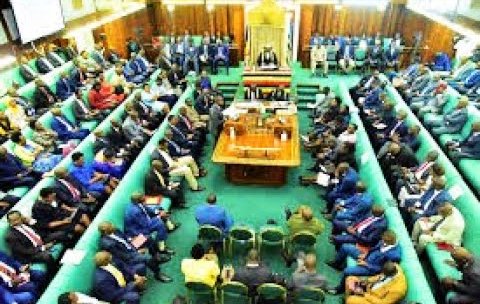According to the Strategic Plan, Parliament systems will be automated and contingency plans established, in case of infrastructure failures.
Uganda’s Parliament has launched its Strategic Plan for 2025/2026–2029/2030, unveiling a transformative e-Parliament project to strengthen legislation, oversight, representation, and citizen participation.
RELATED: Benue State launches Nigeria’s first fully digital e-Parliament, setting benchmark for smart governance
Building a People-Centred and Innovative Parliament
The Speaker of Parliament, Anita Among, represented by Hon. Esther Afoyochan, said the plan aims to position Parliament as people-centred. It will make parliament to be efficient, innovative, and accountable. She emphasized that the initiative will improve the independence of Parliament, and enhance transparency. Similarly, it will deepen oversight of public resources, and reflect the aspirations of Ugandans.
Driving Digital Transformation Through e-Parliament
The Director of Corporate Planning and Strategy, Racheal Emaasit, explained that the e-Parliament project will focus on automation of systems. Other areas of focus include ICT adoption, staff capacity building, and strong cybersecurity protocols. She noted that contingency plans will also be put in place to address potential infrastructure failures.
Emaasit further revealed that Parliament will establish a dedicated SDG Secretariat. This will help to track, monitor, and report on Parliament’s contributions to the Sustainable Development Goals (SDGs). The plan is aligned with Uganda’s National Development Plan IV (NDP IV), ensuring Parliament’s role in sustainable and inclusive national development.
Strategic Targets and Citizen Engagement
The Strategic Plan outlines measurable goals:
- Improve the quality of the legislative process from 62% to 85%
- Enhance budget alignment with NDP IV from 71.4% to 90%
- Increase Parliament’s responsiveness to citizens’ needs from 57% to 75%
“We want to strengthen citizen participation in our processes and improve Parliament’s ability to scrutinize budgets and policies,” Emaasit said.
Ensuring Accountability and Inclusivity
The Clerk to Parliament, Hon. Adolf Mwesige, reassured stakeholders that the plan reflects the priorities of NDP IV and is designed to deliver Parliament’s constitutional mandate effectively.
Charles Oleny, Deputy Executive Director of the National Planning Authority, emphasized the importance of ICT adoption, enhanced research capacity, and professional resourcing to ensure institutional efficiency. He also called on parliamentary committees to strengthen scrutiny of government spending and ensure inclusive representation for youth, women, and marginalized groups.
Government Collaboration for Development Goals
Mary Wanene, Deputy Head of Public Service, representing Lucy Nakyobe, affirmed that the Ministry of Public Service will work closely with Parliament to ensure effective implementation of Uganda’s national development agenda.
With this e-Parliament project, Uganda is set to modernize legislative processes, enhance accountability, and deliver a digital-first, citizen-centred Parliament.
































